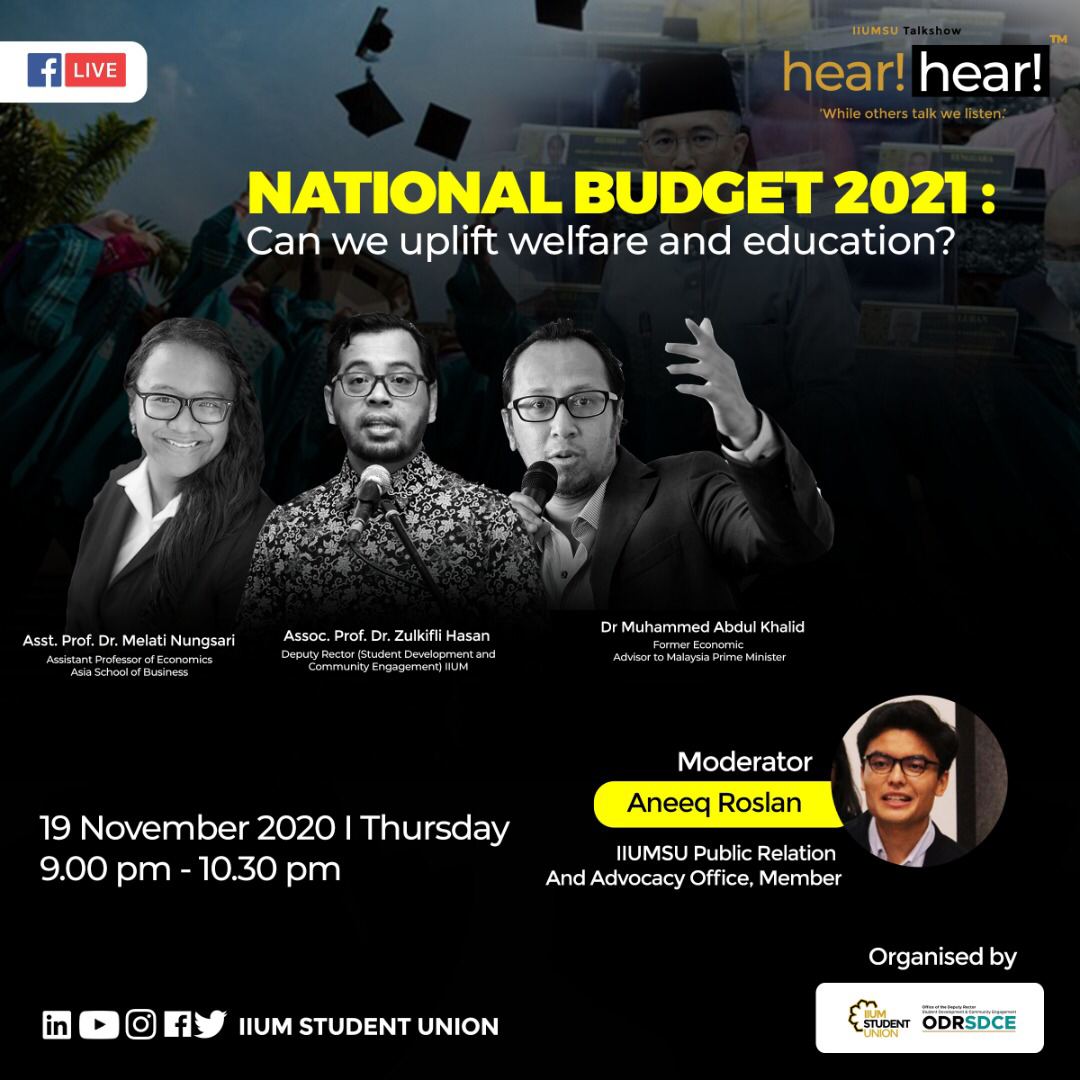By Sarah Rashdi
GOMBAK, 21 November 2020: A talk that featured discussions on œNational Budget 2021: Can we uplift welfare and education? aired on Thursday (19 November) had touched on the fundamentals of the budget to address the consequences of the COVID-19 pandemic that have led to the shrinking of the economy.
The one and the half-hour talk was participated by three notable speakers who infused the discussions with a set of ideas to face the new reality which requires the 2021 budget to emphasise the role of education and welfare.
The inadequacy of National Budget 2021 in addressing some critical issues that relate to education and welfare had been the major concern expressed by certain sections of the public.
IIUM Deputy Rector (Student Development and Community Engagement), Assoc. Prof. Dr. Zulkifli Hasan, highlighted the impact of COVID-19 towards the education sector.
Dr. Zulkifli raised the concern towards e-learning capabilities particularly on the issues of internet accessibility and connectivity among the B40 students who are also faced with the lack of equipment and devices for e-learning. He therefore called for the improvement of digitalisation capabilities to ensure that teaching and learning would not be interrupted.
Meanwhile, Asst. Prof. Dr. Melati Nungsari of Economics Asia School of Business said, œThe economy is currently not in good shape as many people fear the infection. Hence, she said, “the support that people truly in need of now are social protection in order to overcome the situation that had adversely affected their well-being”.
On the aspect of financial assistance, she said that cash handouts should be a one-year type of instrument instead of a one-off since no one knows when this crisis will end and how long it will last.
Dr. Muhammed Abdul Khalid, who was the former academic advisor to the Prime Minister, emphasised the objectives of protecting people’s lives and their welfare.
As there has now been an increase in unemployment, he said that the priority should be focused on the vulnerable group as they need the extra support from the government to cope with the new reality.
Dr. Khalid expressed that in the aspect of education, B40 students represent the majority. Hence, he said, the access to education is not equal as one-third of the students having no electronic device at home.
In order to help the students to face the crisis, Dr. Zulkifli said, œA radical transformation is necessary to conduct more brilliant education and there should be new ideas and thinking out of the box in meeting the needs of the students.
The talk, moderated by Aneeq Roslan, a member of IIUM Student Union (IIUMSU) Public Relations and Advocacy Office, was conducted live via Facebook from 9.00 p.m to 10.30 p.m.***
